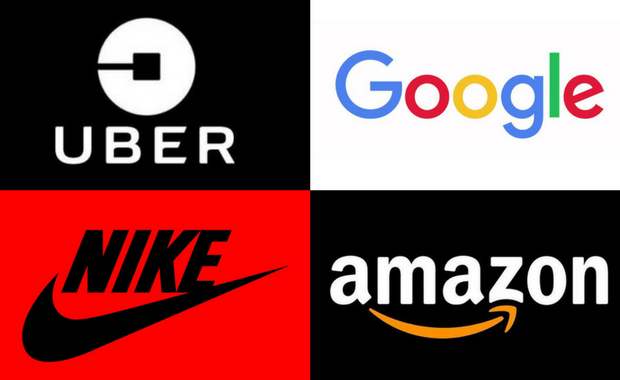Success Advice
5 Things Google, Uber, Nike & Amazon Did to Create Extraordinary Results

Extraordinary businesses are much more about evolution than revolution. Small daily insignificant improvements lead to staggering results over time. Companies such as Google, Uber, Nike and Amazon have not made only one move to amplify their greatness but a series of steps over time. These companies have created un-parallel success due to their belief that success is an inevitable byproduct of doing the little things right. No huge action or silver bullets, instead focusing on achieving legendary business and being better human beings.
The same concept applies, whether it be to companies, or individual performance. Improvements are identified, specific changes are required for the transition and then deliberate immersion until they are automatized.
Important clues hide in the stories of world-renowned creators. Researchers use the term “The Mundanity of Excellence” to describe what makes the best isn’t natural talent or luck but character and the application of a series of simple, specific and learnable methods.
Successful growth companies don’t roll the dice once. When you improve a little each day, eventually big things happen. Invest your energy into seeking the small improvements, small wins, one day at a time and when it happens, it lasts.
Below are 5 principles that when acted upon consistently can lead you to create sustainable results in your business:
1. Played the long game
Media and many within our communities, sensationalize authority figures as overnight success. It rarely exists. Success is captured by thousands of nights in the making, practicing day in and day out and taking countless steps. Bezos attributes Amazon’s success to playing the long game.
When you accept that the journey is not a linear line and you need to work your way there, you take incremental steps to play the long game. Amazon’s first step towards creating the everything store was to focus on selling one thing and one thing only – books. They built one specific product and a strong e-commerce system around it before expanding and diversifying.
2. Thought big, started small
Great companies gather evidence about their capabilities by firing small bullets before they launch a missile. They invest in data to validate where they are heading. They don’t start firing and hope they hit or miss.
When you look back at Google, Larry Page introduced Google Books when he bought a scanner and hooked it up in his office. He began scanning pages, timed it, ran numbers and realized it would be possible to bring book’s online.
Most creators started small. Look at Richard Branson, he started the Virgin Brand with a student magazine. Other examples include Facebook which was started at Harvard and Google started at Stanford with the objective of helping people find information efficiently. Throughout the growth of Google, the company has added more services, yet they continue to focus on one thing only, finding information as quickly as possible.
Amazon dominates different lines of business having little to do with its original undertaking of selling books. Jeff Bezos insists that putting customers first, invent and be patient has been his motto since the beginning.
“Look at things as they can be, not as they are.” – David J. Schwartz
3. Accepted failure as feedback
Failure is inevitable. Humans and business are imperfect. Failure is feedback and opportunity. Fail, but fail early before you invest more than you must or before you compromise your brand. Bezos was interviewed by his brother at Los Angeles’ Summit 2017 where he stated that at the age of 30 he recognized failure was okay but trying was not.
His level of self-awareness allowed him to tap into his courage and take a risk to start an online store. He attributed his success in business due to developing self-reliance and resourcefulness growing up on a ranch. Failure was part of the process, so he mastered that.
4. Found a gap in the market
Uber disrupted the global taxi industry by finding a gap in the market and fulfilled a very real role. Uber removed all the problems associated with taxi services in one fell swoop. They tapped into putting people first by beginning the customer experience through connection of an app to create a personal experience.
They adopted technology at the core and initially focused on raising brand awareness through sponsorship of relevant major events. They harnessed the crowd in the early days with the recommend a friend tactic. They capitalized on social media to the point where the brand became instantly familiar in people’s minds. Step by step, they disrupted the global taxi industry.
“We’ve grown up with internet. We’re able to see things and gaps in markets that others may not be able to.” – Nick D’Aloisio
5. Left a lasting Imprint in people’s minds
“Just do it” is imprinted in the minds of many as is the swoosh logo. In the early days of Nike, putting customers first was paramount. The Nike Moon shoes were a classic example of not only building great products but also highlighting the health benefits of wearing the jogging shoe. The audience wasn’t looking for better running shoes but a better way to get in shape.
Like the other companies identified, Nike has taken small steps over time to significantly impact millions of people. Their brand stands alone, yet they have adapted through upgraded designs, embraced new technologies moving from print to social media platforms and adapted to the needs of their audience.
They continue to hold on to their customer-centric messaging by staying true to their sense of purpose, emphasizing benefits of their products and reinforcing the message that they help their clients be better at what they love to do.
None of these companies sold products, they spread ideas and delivered the benefits that came with it. Over time, they built trust with customers by adding immense value. A style that will never out date.
Which one of these companies is your favorite one and why? Let us know in the comments below!
Business
Why Smart Entrepreneurs Are Quietly Buying Gold and Silver
When stocks, property, and cash move together, smart business owners turn to one asset that plays by different rules.

You’ve built your business from the ground up. You know what it takes to create value, manage risk, and grow wealth. But here’s something that might surprise you: some of the most successful entrepreneurs are quietly adding physical gold and silver to their portfolios. (more…)
Business
The Simple Security Stack Every Online Business Needs
Most small businesses are exposed online without realising it. This simple protection stack keeps costs low and risks lower.

Running a business online brings speed and reach, but it also brings risk. Data moves fast. Payments travel across borders. Teams log in from homes, cafés, and airports. (more…)
Business
If Your Business Internet Keeps Letting You Down, Read This
From smoother operations to better security, dedicated internet access is quietly powering today’s high-performing businesses.

Today, a dependable internet service is the bedrock for uninterrupted business operations. Many organizations rely on stable online connections for communication, data transfer, and customer interaction. (more…)
Did You Know
How Skilled Migrants Are Building Successful Careers After Moving Countries
Behind every successful skilled migrant career is a mix of resilience, strategy, and navigating systems built for locals.

Moving to a new country for work is exciting, but it can also be unnerving. Skilled migrants leave behind familiar systems, networks, and support to pursue better job opportunities and a better future for their families. (more…)
-

 News4 weeks ago
News4 weeks agoBrandon Willington Builds 7-Figure Business by Ignoring Almost Everything
-

 Business3 weeks ago
Business3 weeks agoEntrepreneur’s Guide to Pay Stubs: Why Freelancers and Small Business Owners Need a Smart Generator
-

 Business3 weeks ago
Business3 weeks agoThe Salary Shift Giving UK Employers An Unexpected Edge
-

 Scale Your Business3 weeks ago
Scale Your Business3 weeks ago5 Real Ways to Grow Your User Base Fast
-

 Business3 weeks ago
Business3 weeks agoThe Simple Security Stack Every Online Business Needs
-

 Finances3 weeks ago
Finances3 weeks agoWhy Financial Stress Is One of the Biggest Barriers to Personal Growth
-

 Business2 weeks ago
Business2 weeks agoWhy Smart FMCG Entrepreneurs Outsource What They Can’t Automate
-

 Did You Know2 weeks ago
Did You Know2 weeks agoThe SEO Traps Even Experienced Marketers Fall Into





























2 Comments